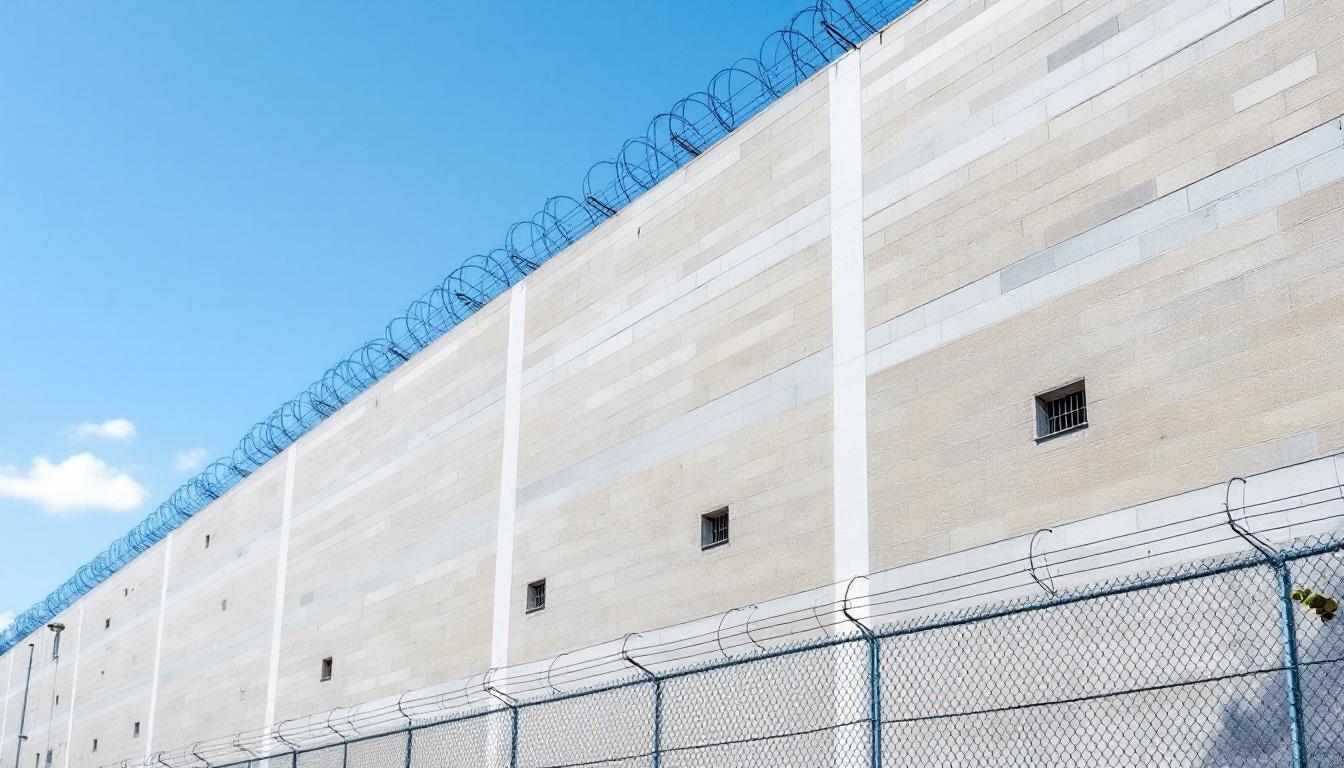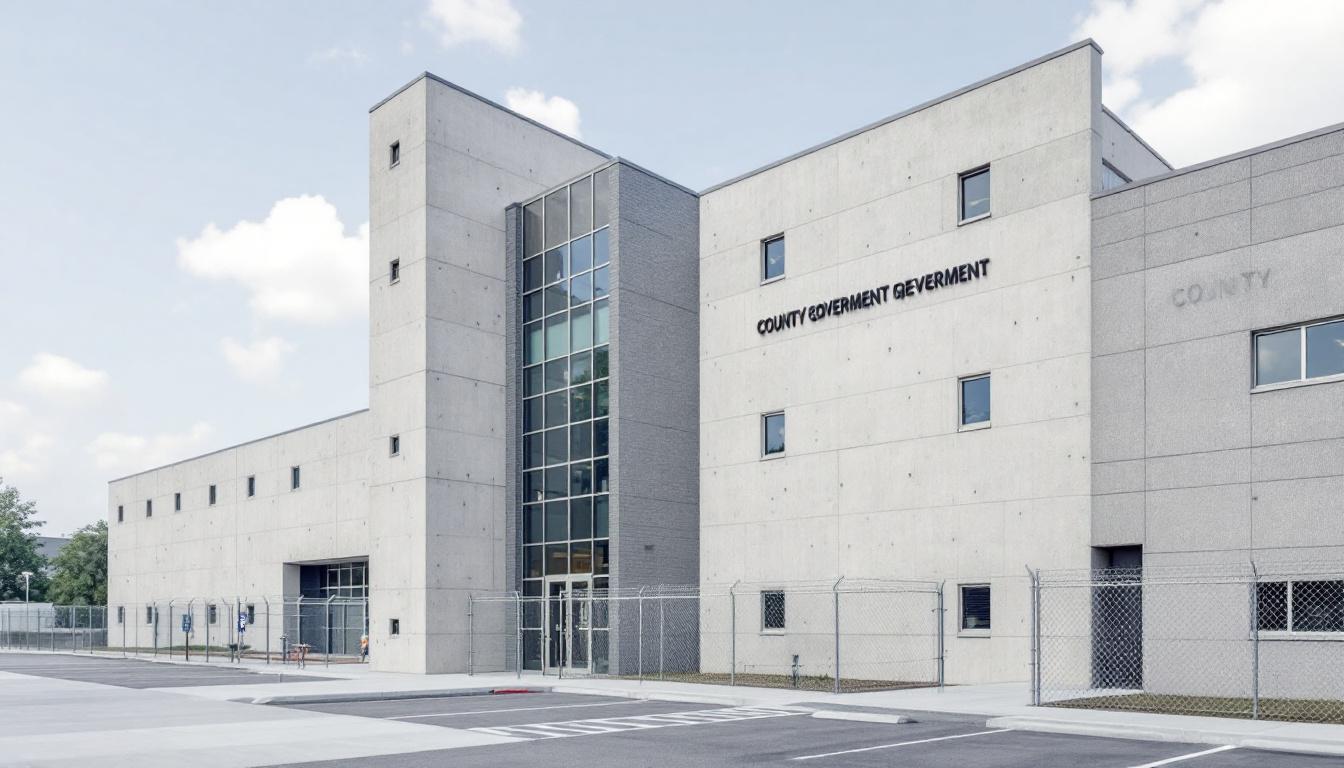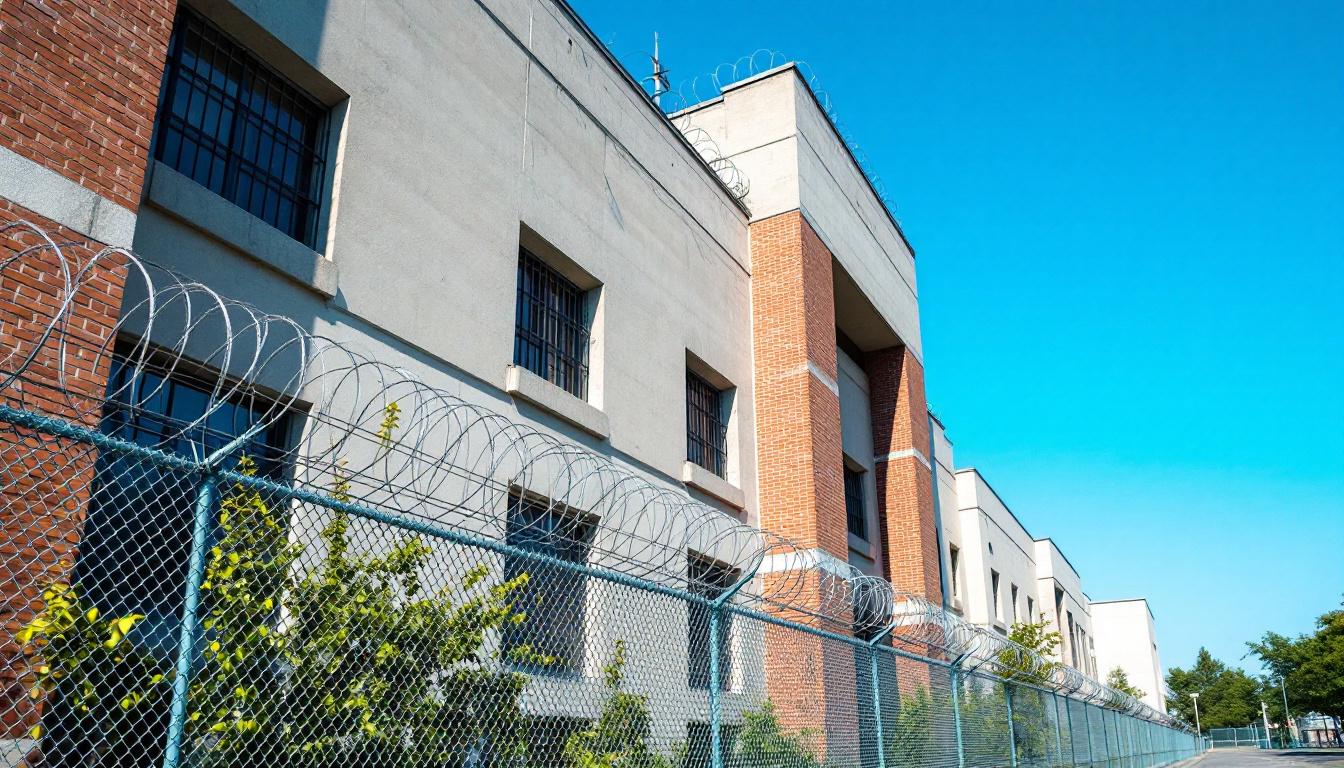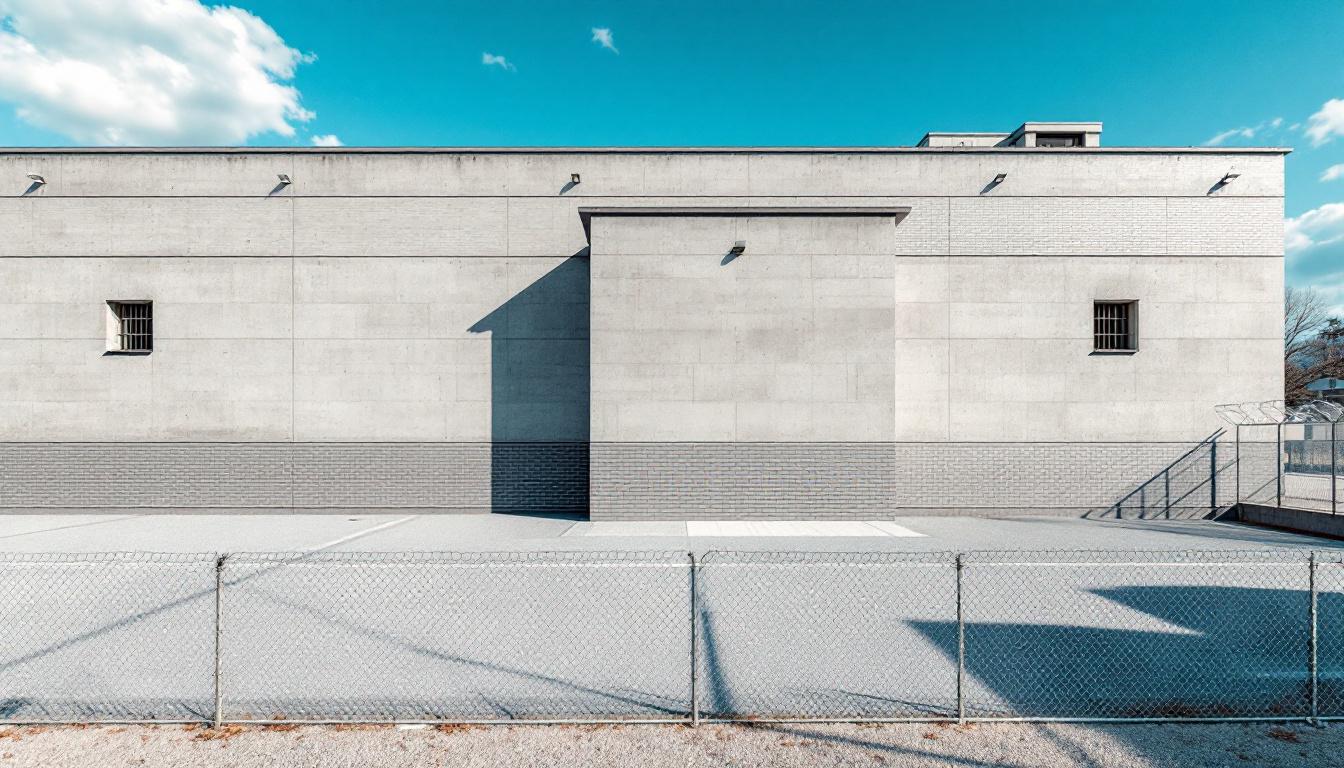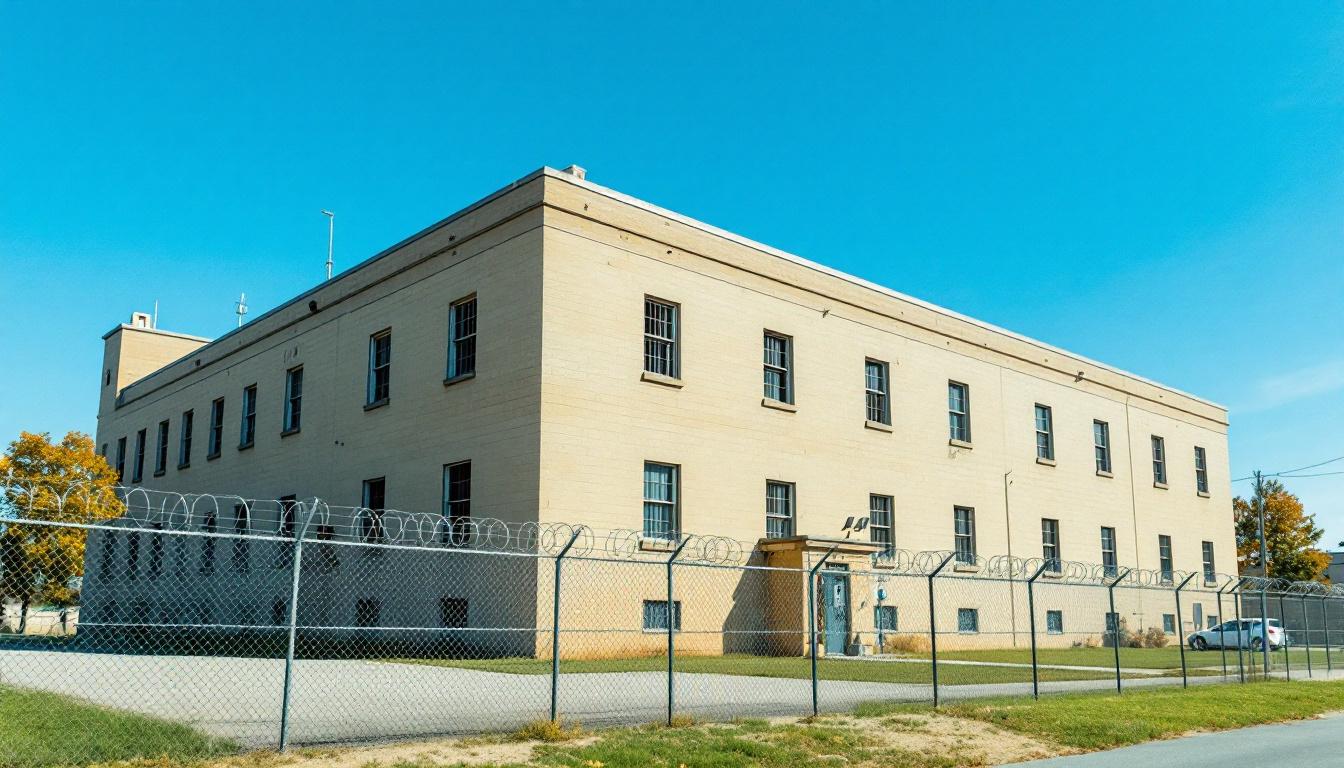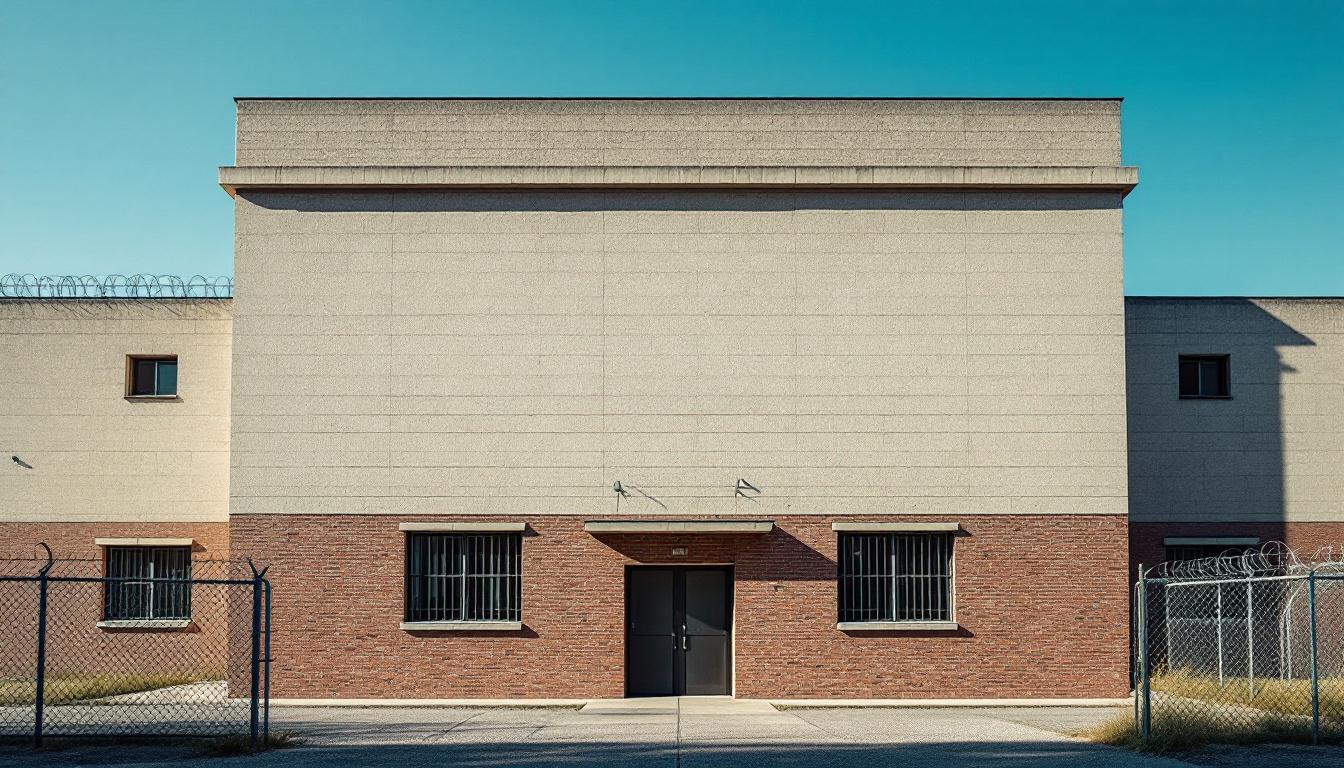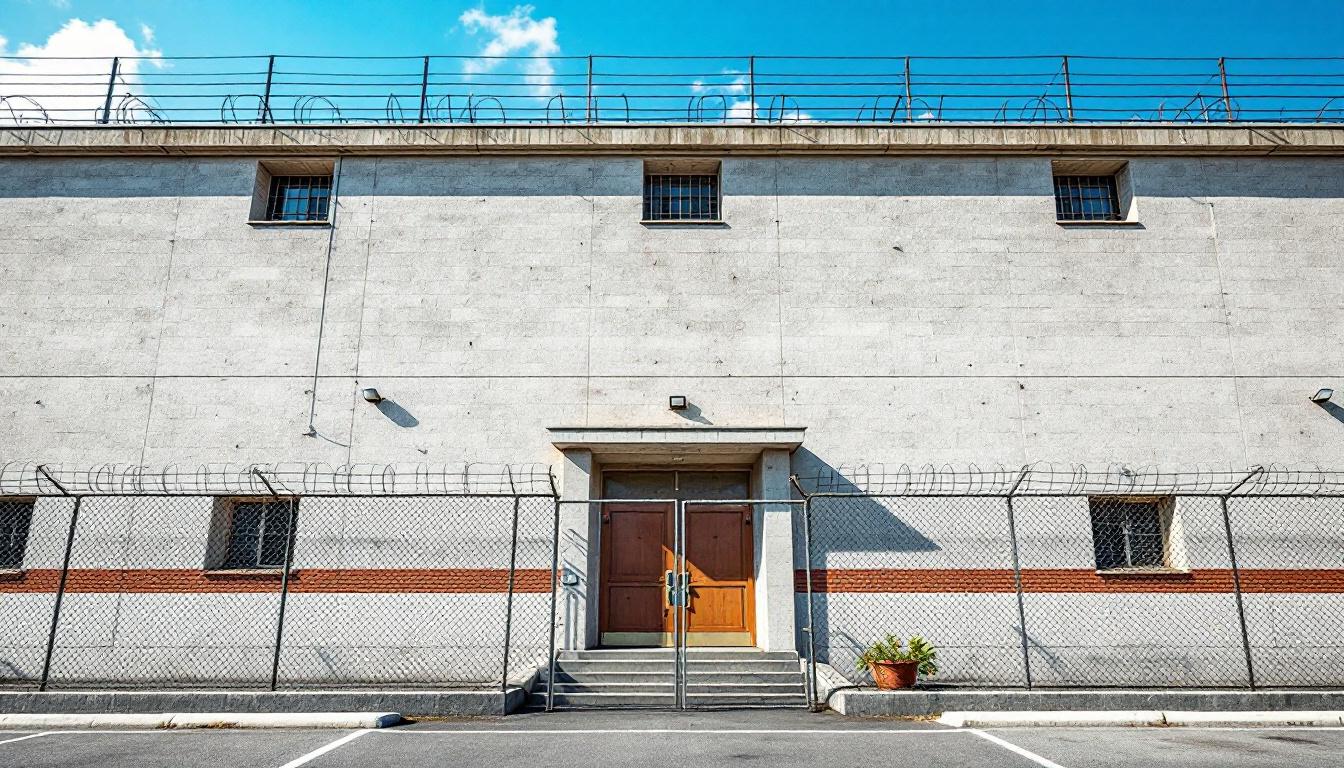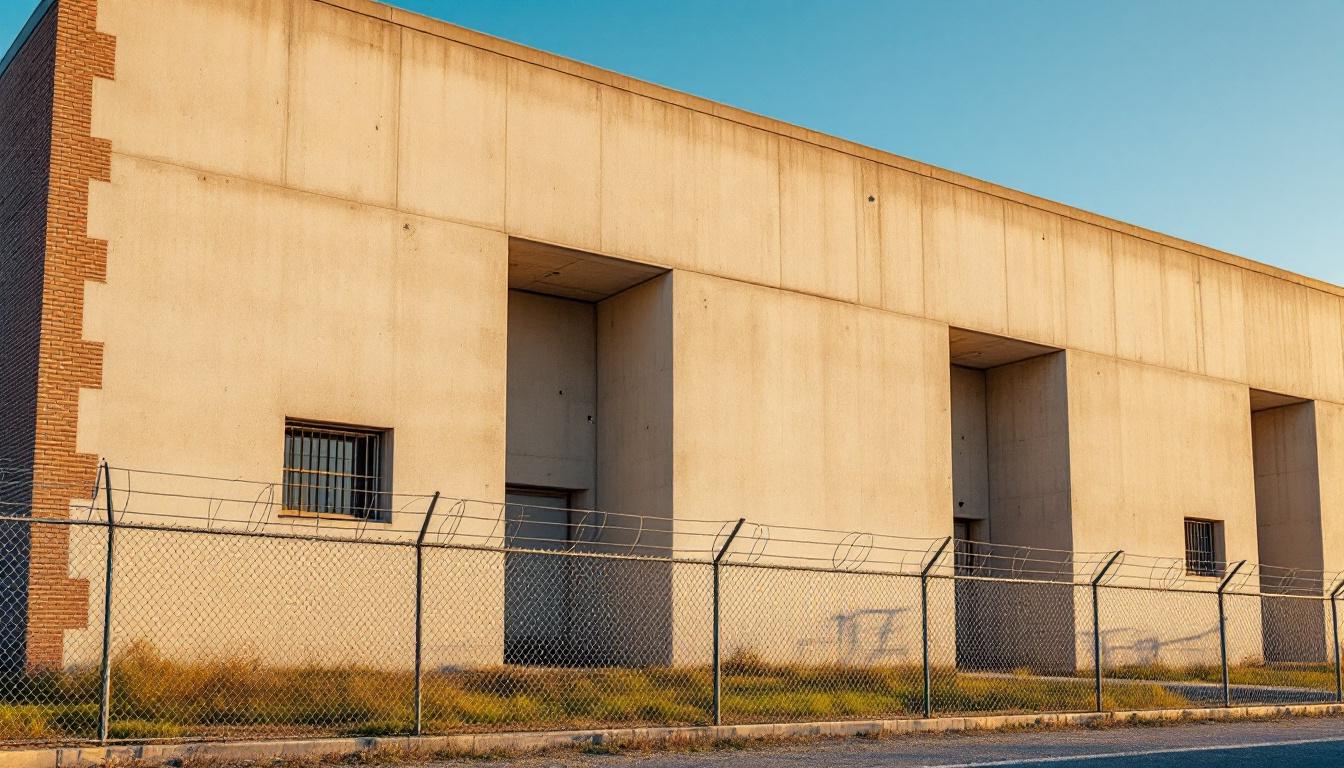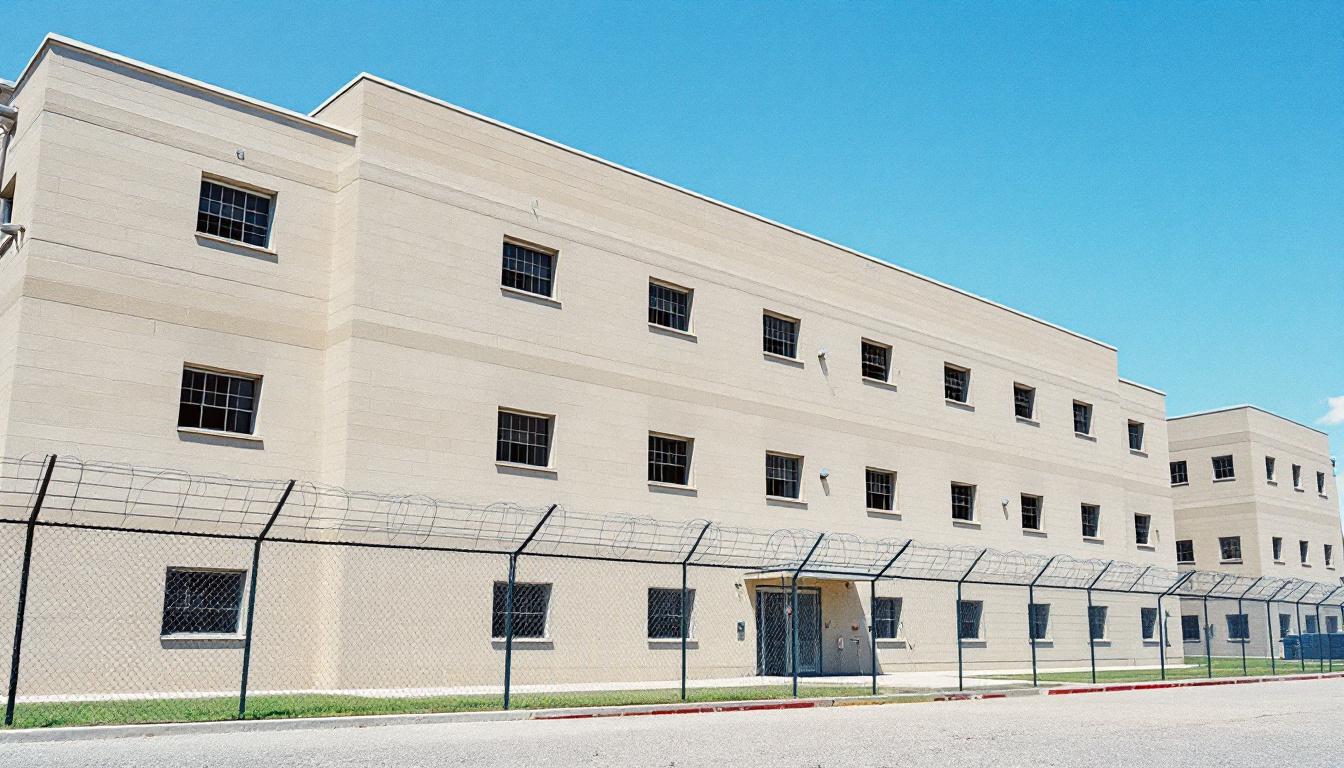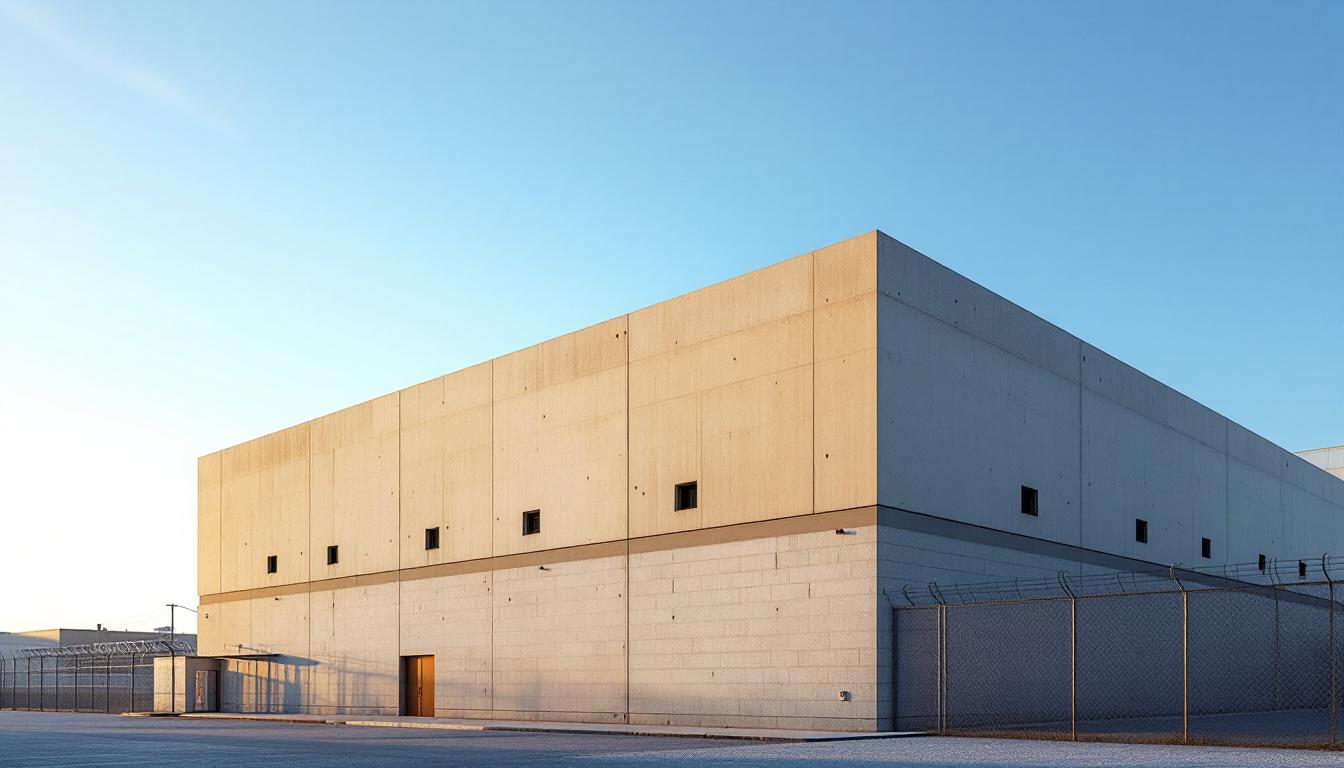
Quick Navigation
How to contact an inmate at Texas Department of Criminal Justice William G. McConnell Unit
This comprehensive guide will walk you through how to connect with an inmate at Texas Department of Criminal Justice William G. McConnell Unit. Follow the steps below to find an inmate and send letters and photos:
- Search for the inmate using our search tool below
- Create your account or log in to Penmate
- Write your message (up to 6,000 characters)
- Send instantly - inmates receive printed copies daily
Find an Inmate
Search for an inmate to start communicating today
Tip: You can search by first name, last name, or inmate ID number
To contact a person at Texas Department of Criminal Justice William G. McConnell Unit start by searching for the person on the official facility website. Perform a search by following these steps:
- Step 1: Enter their first name and last name into the search form and click "Search"
- Step 2: Locate their inmate record
- Step 3: Write down their Inmate ID and any housing information provided
Important! Be sure to enter the person's full name. Nicknames should not be used.
How to Send Messages to Inmates

You can use your phone or computer to send emails, letters, and photos to an inmate. Messages are sent electronically to inmate tablets or kiosks at the facility. If you would like to send a message, start by searching for an inmate at Texas Department of Criminal Justice William G. McConnell Unit.
Sending Photos and Postcards

A great way to send love and support to a loved one at Texas Department of Criminal Justice William G. McConnell Unit is to send photos and postcards. It only takes a few minutes to send photos from your phone and it makes a huge difference. You can also mail postcards with words of support and inspiration, or design your own postcard for special moments like birthdays and holidays.
Important! Be sure not to send any explicit photos or they may not be approved by the facility. You can also use a photo printing app like Penmate to make sure your photos are printed at the correct size (4x6 or 3x5) and are mailed according to the rules and regulations of Texas Department of Criminal Justice William G. McConnell Unit.
Frequently asked questions about Texas Department of Criminal Justice William G. McConnell Unit
-
How long does it take to deliver a message?
If you're sending an email message your letter is usually delivered within 24-48 hours. For messages sent via mail you should expect delivery within 3-7 days. All messages will need be approved by Texas Department of Criminal Justice William G. McConnell Unit.
-
How much does it cost to send a message to Texas Department of Criminal Justice William G. McConnell Unit?
You can send a message free using your phone or mail a message via USPS for the price of a $0.60 stamp and envelope. You can also purchase credits or e-stamps from services starting at $1.99.
-
What services can I use to contact an inmate at Texas Department of Criminal Justice William G. McConnell Unit?
Penmate
You can use Penmate to send letters and photos to an inmate from your phone. It's an easy way to stay in touch during your loved one's incarceration. Use the inmate locator to find an inmate's location and contact information, then you can send messages within a few minutes.
Securus messaging
Securus may be another option for communicating with an inmate at Texas Department of Criminal Justice William G. McConnell Unit. You can create a friends and family account and purchase credits to send messages. All messages will be reviewed and must be approved by the facility.
JPay
Some county jails and state prisons may support sending messages with JPay. You must register an account with the system, find your loved one, and purchase stamps to send messages. For some locations you can also attach photos.
Smart Jail Mail
You may also check if Smart Jail Mail is available at Texas Department of Criminal Justice William G. McConnell Unit. Smart Jail Mail is operated by Smart Communications and has contracted with some state and county jails. After purchasing credits, your messages and photos are sent to the facility, printed out, and then handed out to your loved one.
-
What is the mailing address of Texas Department of Criminal Justice William G. McConnell Unit?
Mailing address:
Texas Department of Criminal Justice William G. McConnell Unit
3001 Emily Dr
Beeville, TX 78102
Phone: (361) 362-2300Business hours:
- Monday: Open 24 hours
- Tuesday: Open 24 hours
- Wednesday: Open 24 hours
- Thursday: Open 24 hours
- Friday: Open 24 hours
- Saturday: Open 24 hours
- Sunday: Open 24 hours
-
What are the visiting hours at Texas Department of Criminal Justice William G. McConnell Unit?
Visiting hours at Texas Department of Criminal Justice William G. McConnell Unit vary by housing unit and security level. Generally, visits are scheduled on weekends and holidays, with some facilities offering weekday visits. Contact the facility directly at (361) 362-2300 or check their website for the current visiting schedule. Visits typically last 30-60 minutes and must be scheduled in advance.
-
What items are prohibited when sending mail to Texas Department of Criminal Justice William G. McConnell Unit?
Prohibited items typically include: cash, personal checks, stamps, stickers, glitter, glue, tape, staples, paperclips, polaroid photos, musical or blank greeting cards, hardcover books, magazines with staples, and any items containing metal or electronics. Only send letters on plain white paper with blue or black ink. Photos must be printed on regular photo paper (no Polaroids). Always check with Texas Department of Criminal Justice William G. McConnell Unit for their specific mail policies.
-
How do I send money to an inmate at Texas Department of Criminal Justice William G. McConnell Unit?
You can send money to an inmate at Texas Department of Criminal Justice William G. McConnell Unit through several methods: 1) Online using JPay, Access Corrections, or the facility's approved vendor, 2) Money orders mailed directly to the facility with the inmate's name and ID number, 3) Kiosks located in the facility lobby, or 4) Over the phone using a credit or debit card. Fees vary by method, typically ranging from $2.95 to $11.95 per transaction.
-
Can I schedule a video visit with an inmate at Texas Department of Criminal Justice William G. McConnell Unit?
Many facilities now offer video visitation as an alternative to in-person visits. At Texas Department of Criminal Justice William G. McConnell Unit, video visits may be available through services like Penmate, Securus Video Connect, GTL, or ICSolutions. Video visits typically cost $10-20 for 20-30 minutes and must be scheduled in advance. You'll need a computer or smartphone with a camera and reliable internet connection. Contact the facility for their specific video visitation policies and approved vendors.
-
What identification do I need to visit an inmate at Texas Department of Criminal Justice William G. McConnell Unit?
All visitors must present valid government-issued photo identification such as a driver's license, state ID, passport, or military ID. Minors must be accompanied by a parent or legal guardian who can provide the minor's birth certificate. Some facilities require visitors to be on the inmate's approved visitation list, which may require a background check. Contact Texas Department of Criminal Justice William G. McConnell Unit for specific ID requirements and visitor approval procedures.
-
How can I find out an inmate's release date?
To find an inmate's release date at Texas Department of Criminal Justice William G. McConnell Unit, you can: 1) Use the online inmate search tool if available, 2) Call the facility's records department, 3) Contact the inmate's case manager or counselor, or 4) Have the inmate provide this information during a call or visit. For privacy reasons, some facilities only release this information to immediate family members.
Facility Overview
Contact Information
Texas Department of Criminal Justice William G. McConnell Unit3001 Emily Dr
Beeville, TX 78102
Phone: (361) 362-2300
Official Website

About Texas Department of Criminal Justice William G. McConnell Unit
Within Dallas's expansive urban landscape, community safety and offender rehabilitation intersect through the operational framework that McConnell Unit, TX provides to the broader metropolitan region. This TX correctional facility functions as an integral component of the state's comprehensive corrections network, serving multiple counties while maintaining its commitment to evidence-based practices that benefit both incarcerated individuals and the surrounding communities they will eventually rejoin.
The facility's strategic position within the South Region's correctional infrastructure typically enables coordinated programming approaches that may include educational advancement opportunities, vocational skill development, and behavioral intervention services. McConnell Unit generally operates under standardized protocols common to Texas correctional facilities, often incorporating therapeutic programming designed to address underlying factors that contribute to criminal behavior. These inmates services frequently encompass substance abuse treatment, mental health support, and life skills preparation that align with research-supported rehabilitation methodologies.
As part of Dallas's broader public safety ecosystem, this correctional facility typically maintains operational standards that emphasize both security and constructive programming. The institution generally provides essential services such as medical care, educational programming, and work assignments that may include facility maintenance, food service, or vocational training opportunities. Through its integration within the regional corrections network, McConnell Unit often facilitates family visitation programs and communication services that help maintain important community connections throughout the incarceration period.
Programs & Services
Personal transformation through structured programming forms the cornerstone of rehabilitative services at McConnell Unit, where inmates engage in comprehensive development opportunities designed to address multiple facets of reintegration preparation. The facility's approach to rehabilitation emphasizes skill-building and behavioral modification through evidence-based programming that targets both immediate needs and long-term success factors. This multifaceted framework typically encompasses educational advancement, vocational preparation, and therapeutic support services that work synergistically to promote positive behavioral changes and reduce recidivism potential.
Educational and vocational services may provide inmates with essential skills training through various vocational programs that prepare participants for post-release employment opportunities. These programs often include hands-on training in marketable trades, complemented by barbering and cosmetology instruction that offers specialized certification pathways. Additionally, work programs within the facility typically allow inmates to develop professional competencies while contributing to institutional operations through facility maintenance responsibilities, creating practical experience that translates to workplace readiness upon release.
The facility's support services framework often includes faith-based initiatives that address spiritual development and moral reasoning, while parenting classes may provide crucial instruction for inmates seeking to rebuild family relationships. Family reunification services typically focus on strengthening familial bonds through structured programming that emphasizes communication skills and conflict resolution strategies. These therapeutic and support services work collectively to address the underlying factors that contribute to criminal behavior, while simultaneously building the social and emotional competencies necessary for successful community reintegration and sustained behavioral change.
Daily Life & Visitation
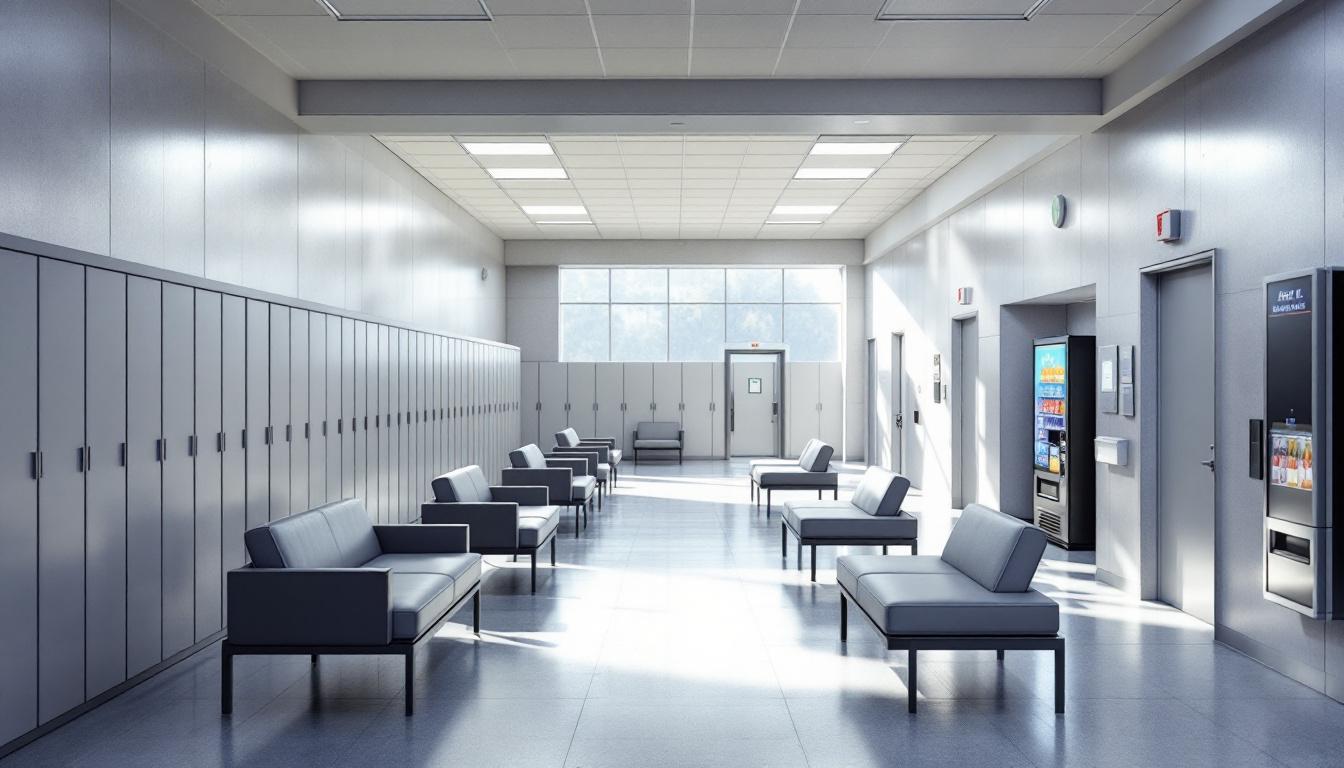
The concrete walls and steel doors of the housing units create a structured environment where every movement follows established protocols and security procedures. At present, inmates actively navigate their daily routines within dormitory-style housing arrangements that typically accommodate multiple residents per unit, with personal storage space limited to designated areas for approved belongings. The facility generally maintains a regimented schedule that begins with early morning counts and extends through evening lockdown, providing inmates with predictable structure as they adapt to institutional life.
Living accommodations within the housing units typically feature shared sleeping quarters with basic furnishings, where inmates learn to respect personal boundaries and establish routines around limited privacy. Additionally, the dining hall serves meals at designated times throughout the day, with inmates moving in supervised groups to and from the facility areas according to established protocols. While personal property remains restricted to essential items and approved commissary purchases, inmates may receive funds from family members to supplement their basic needs through the institutional store system.
The facility provides various structured programming schedules that include educational opportunities, vocational training, and recreational activities designed to support rehabilitation goals. Additionally, inmates typically have access to outdoor recreation areas during designated periods, allowing for physical exercise and fresh air within the secured perimeter. While visitation policies generally permit scheduled contact with approved family members and friends, inmates may also maintain communication through monitored telephone calls and correspondence, helping them preserve important relationships during their incarceration period.
Ready to Connect?
Start communicating with your loved one today
Search for an Inmate
